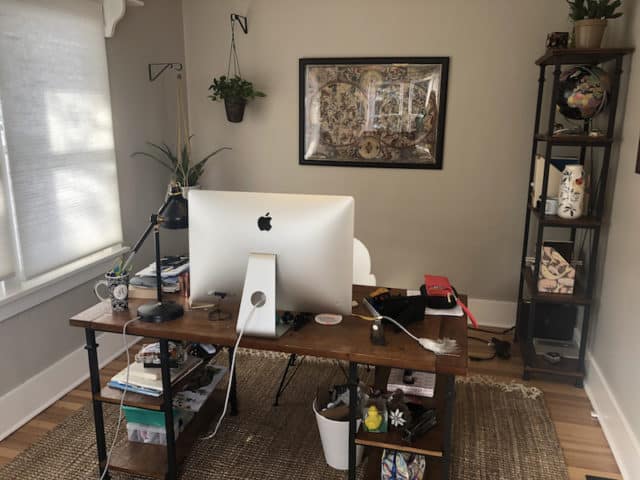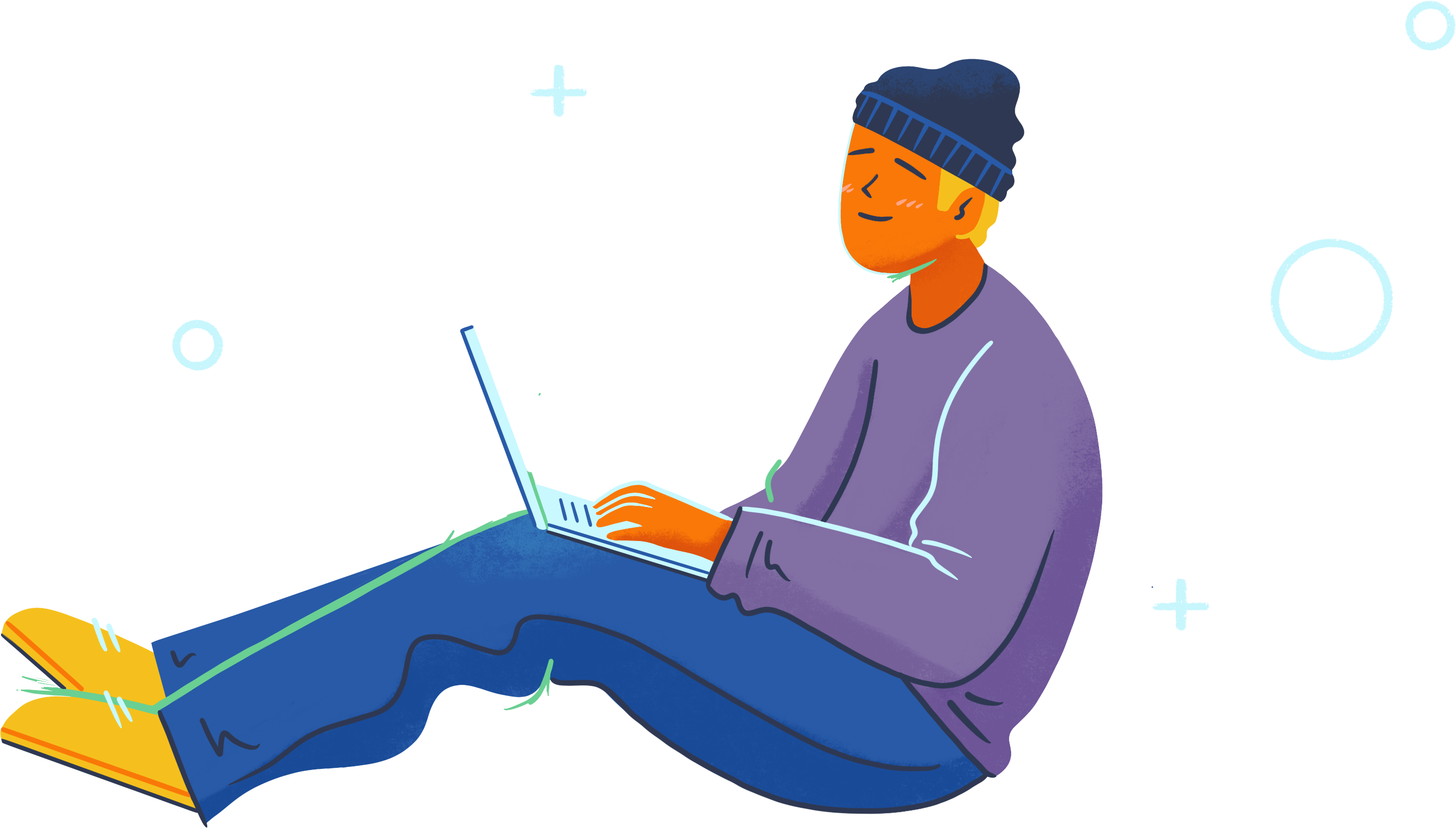About five years ago, I discovered Treehouse in an online search and my life changed completely. I was a digital marketing manager looking to transition into more of a tech role, and Treehouse helped open that door for me: after a few months of taking courses, I started freelancing full time as a front end developer.
What could have been a misbegotten foray into self-employment ended up being an exhilarating and fulfilling three years of working for myself. I cultivated a work ethic, a sense of determination and a mission. I worked each day to strengthen my skills as a developer. I figured out how to run a business. I rejoiced in the sense of freedom and choice and opportunity that I felt.
But if they’re left unchecked, the freedom and autonomy of the freelance life can breed instability, risk, and anxiety. This is why, before you embark on this adventure, you should know what you’re getting yourself into, and take the time to assess your skills and strengths to see if freelancing is truly a good fit. Here are a few things to consider:

1. Can you absorb risk, and will you enjoy that?
Freelancing is not inherently any riskier than any other type of employment — it’s just a different type of challenge, with different dependencies, but it takes time for new freelancers to build a client base, establish a brand or reputation, and develop processes and routines. You need to have a clear sense of the limitations and needs of your financial, familial and personal situation. Do you have the means to get by in your early months of freelancing? Do you have the support of your friends and family? You must also ask yourself if you can tolerate the stresses of being solely responsible for the success or failure of your burgeoning business.
Even in established businesses, freelancers expose themselves to all types of risks. There are liabilities associated with every choice, from taking on new clients (what if they don’t pay?) to hiring staff members (what if they don’t deliver?) to even choosing software (what if my invoices don’t go out, or my hosting service is interrupted?). Though it does get easier with experience, not knowing if you’re making the right choice is emotionally taxing.
Once, I took on a new client without a contract because she was referred to me by a longstanding client that I had a very positive relationship with. After twenty-two hours of work, I delivered the job but never got paid. Taking on this client without a contract was the wrong choice.
Another time, I was contacted by a new client for a job I didn’t know how to do. I put hours and hours of unpaid time into learning a new platform to win this client and ended up establishing the most stable and lucrative relationship of my freelancing career. Taking all that unpaid time was the right choice.
You need to be able to tolerate, manage and simultaneously prevent risk while still making choices that move your business forward. Calculated risks are imperative to your success and an unwillingness to make them will not serve you well.
2. Are you able to negotiate and influence situations?
Freelancers spend a lot of time negotiating. For a typical thirty-hour website build, I might spend close to six hours in negotiation and discussion before the contract is signed. Those hours can’t be billed for directly, and it’s not uncommon for a deal to fall through after that time is spent. You had better be skilled at negotiating, at the very least, to ensure you’re not taking financial losses just in an effort to land clients.
As a traditional employee, you probably negotiated your salary when you were offered the job and then didn’t think about it until it was time for a raise. As a freelancer, you will set and negotiate your fees all the time. The ability to honestly assess the value of your work and then ask for what you’re worth can drastically affect your income and earnings potential. This is especially true when a client sees your price tag and balks. Knowing how to confidently set and negotiate your rate, when to reduce prices, or when to pass on a client is vital to your success.
But freelancers must also use the power of negotiation in several other ways. Contracts, for example: Do you know where to hold your ground, and what to compromise on? Can you win clients over and get them to see your perspective or to find a middle ground?
When facing an unhappy or unsatisfiable client, are you able to artfully lead the situation to a positive outcome? Can you diplomatically set and enforce limits on working hours, revisions and deadlines? Can you negotiate fair discounts for when you make mistakes?
Negotiation skills are as critical as your ability to code. They can be developed and strengthened, but be sure this is something you’re willing to work on.

3. Are you willing to go outside of your comfort zone and learn business skills?
As a developer, writing code is likely where you feel the most comfortable. It’s probably not hosting webinars, making cold calls, attending networking parties, crafting blog posts, collecting money, hiring an accountant or chatting with the IRS. Yes, that’s right, welcome to freelancing, you now file and pay taxes every quarter!
From personal experience, I can tell you that every one of those things was outside of my comfort zone when I started freelancing. Coincidentally, every one of those activities was also critical to marketing and running my business. I had to learn to not only be comfortable performing those activities but also learn to perform them well.
But this was hard. Really hard. Back when I was freelancing I was also running a blog and selling a course for freelancers. I knew that part of promoting this course meant hosting webinars, but the idea of being live on camera was paralyzing. So I joined a women’s entrepreneurship group and, through this group, found an accountability partner who agreed to host some with me. I absolutely stumbled and struggled through these. Losing my train of thought and blankly staring in the middle of a live presentation is pretty embarrassing!
But, truthfully, sometimes our greatest successes — both professionally and personally — come only when we’ve reached beyond what we know are comfortable with to try and learn something new. Now, as a Treehouse teacher, I deliver content on camera regularly, and I think it’s fun and exciting. If I hadn’t pushed myself, I wouldn’t have sold any courses on my website, and I probably wouldn’t have this job today! You have to be willing to grow because there are absolutely parts of freelancing that will require you to do so.
4. Are you willing to take care of yourself?
This question might seem odd but it’s really important to ask. Working in a traditional employment setting can provide necessary and important structure in your life. You have a routine of waking up each morning at a reasonable hour and going to work. Being out in public usually encourages good hygiene. Small movements around the office to chat with coworkers, use the restroom or get lunch bring some activity to your day. You’re surrounded by both people you enjoy and those you dislike — a key to maintaining balance as well as practicing self-control and tolerance.
But as a freelancer, particularly one that works from home, you have to be willing and disciplined enough to create this structure for yourself. Getting up each morning (even when no one is asking you to), practicing basic hygiene, getting dressed, exercising and seeking out engaging social situations are all things you now must be self-motivated to do. If you’re not, you could find yourself suddenly a shell of the clean, fit, socially adept person you used to be. There was a time in the winter of 2015 when I realized I hadn’t left my house or spoken out loud to another human being in six days. I billed a heck of a lot that week, but I’ll tell you, I really didn’t feel too good.
The three years I spent freelancing was some of the most exciting and challenging years of my career so far. When you’re a freelancer you run the show — your time is your own, and so are your triumphs and your failures. You’re the boss, and really, there’s nothing better than that.
If Ashley’s story of freelance freedom as a front end developer inspired you, check out our Techdegree and build your own freedom.
Free Trial

